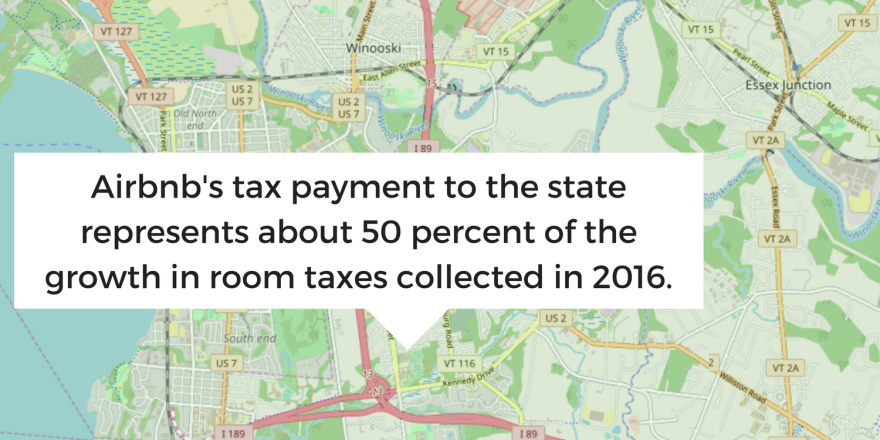A newly issued legislative report says online home sharing services like Airbnb should be regulated locally. But one of the lawmakers who requested the study says oversight should happen on a statewide level.During the last legislative session, Chittenden County Sen. Ginny Lyons introduced a bill that would have required all short-term rental hosts to register with the state and pay a fee.
The bill never made it out of committee because legislators said they needed to know a lot more about how companies like Airbnb work, and how the services impact the Vermont tourist economy. So they asked for a study.
The resulting 24-page report just came out.
According to the report


Read host testimonials submitted to the working group, here.

Legislative response
Lyons says the working group didn't go far enough in making concrete recommendations on how the state can get a better handle on the explosive growth of short term rentals in Vermont
"My initial reaction was disappointment," Lyons says. "I was hoping that we'd see some legislative recommendation that we could take into committee and review."
The committee scaled back Lyons's idea of starting a statewide registry that would have been controlled by the Department of Health.
Instead, the committee says town and cities should make their own decisions about whether Airbnb hosts need to register with their local municipal office.
Lyons says the issue is way too complex, and it should be handled on the state level.
"To demand that local municipalities or town clerks take over this kind of public safety requirement or public health requirement I think is really not realistic," she says.
Whether registration is done locally or statewide, Lyons says it would make it easier to distribute information on insurance, fire safety and health codes.
In the report, the Division of Fire Safety recognizes that they can't inspect the thousands of rooms and houses that have been listed over the past few years with the rise of online rental services.
And when it comes to public safety issues, like clean water and bedbugs, the Department of Health likewise doesn't have inspectors to make sure short-term rentals follow the same health codes that inns and hotels follow.
Vermont Chamber of Commerce vice president of tourism Ronda Berns took part in the short-term rental study and she represents hotels and inns across Vermont.
Berns says many inns that have three or four rooms, just like a short-term rental, have to register with the state and the owners have to follow all state health and safety codes.
"What's hard to understand is why we would not then require short-term rentals, which are basically the same as small B&B's to do the same thing," she says.
Berns says legislators should use the report as a starting point, and she says she'll be back in Montpelier next year pushing for much stronger oversight.
"If you're going to create a level playing field, having them all register with the state makes the most amount of sense," says Berns. "We have a short-term rental group that's out there, not really understanding what their liability is, or whether or not they should be collecting taxes. They don't know what kind of insurance they need to have or if they are fully protecting themselves and the general public."
But Airbnb spokesman Peter Schottenfells says the report did a good job in recognizing the benefits short-term rentals bring to the state, and not burdening hosts with extra requirements.
Schottenfells says in Vermont, on average, hosts rent out their spaces for about 24 nights, and he says they shouldn't have to meet the same regulatory hurdles that full time inns face.
"We think that this is a solid starting point," Schotenfells says. "The group's recommendations are the first steps to forming a sensible framework for local officials and municipal officials, and their residents, to regulate home sharing."
Sen. Lyons wants to get the issue of registering short-term rentals back on the legislative agenda and she says she'll push for new regulations when lawmakers return to Montpelier in January.





